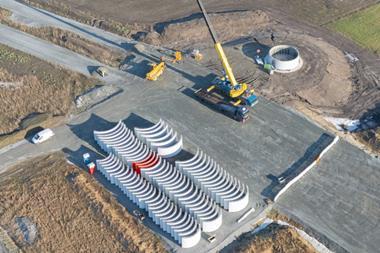EUROPE - A bifurcation of the European real estate markets in coming months will lead to disappointment for investors banking on 2011 being a vintage investment year, according to a leading investment survey.
Emerging Trends in Real Estate 2011, published by PricewaterhouseCoopers (PwC) and the Urban Land Institute (ULI), has predicted the emergence of a two-speed market in Europe, reflecting the widening gap between investment hotspots and second-tier property markets.
John Forbes, partner at PwC and one of the authors of the report, said: "In future years, we may look back on 2011 as a transformational year for the property industry. Real estate professionals face a challenging time."
Many of the 600 industry experts interviewed by the report expressed serious concerns about real estate areas outside the prime regions, suggesting favoured cities like Munich, London and Paris will continue to attract the majority of investment.
Even within the most favoured markets, investment will be drawn mainly to the prime buildings, the report predicts, while values for secondary properties will remain at distressed levels and decline further in the months ahead.
"Traditional sources of debt, for refinancing properties with vacancies or in need of refurbishment, will not be available, although new sources of lending are expected in the shape of sovereign wealth funds and insurance companies," Forbes added.
"A big theme will be the continued downsizing of the industry, and the winners will be those who are best able to manage their assets, rather than those who make clever stock selections."
Patrick Phillips, chief executive at ULI, said: "Some of the trends we saw last year continue, such as a flight to quality and a bifurcated market, with strong interest in the best assets in the global gateway cities and little interest elsewhere.
"The real difference in this year's report appears to be the perceived weakness in the government's ability to spark demand or ameliorate the pain in the industry.
"Equally clear is the emphasis on the hard work of managing assets: repositioning properties to better meet market demand, creative approaches to maintaining and adding value, and effective and efficient property management."
The report also forecast an increase in investment equity coming to the market, mainly from investors in Asia Pacific and from insurance companies and private equity-style funds.
But the consensus view was that even if new players did emerge, they would take a long while to do so and would only partially relieve congestion.
Forbes said: "As is the case with so many positive trends today, they do not constitute unqualified good news.
"Equity, which is now choosier and more risk averse, will be funnelled toward a smaller slice of the industry, ensuring that the capital-raising environment is set to be tough for a good while yet."












